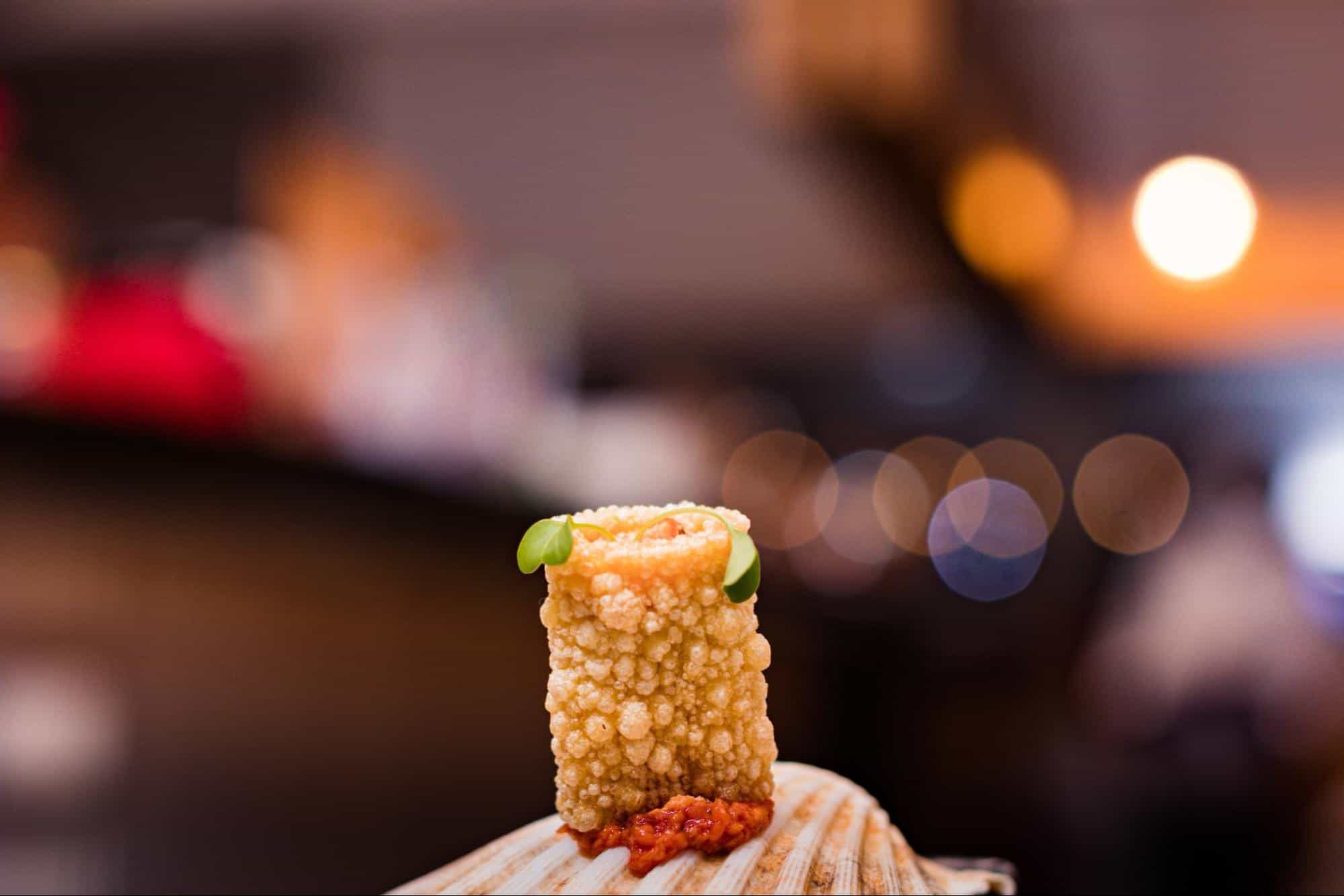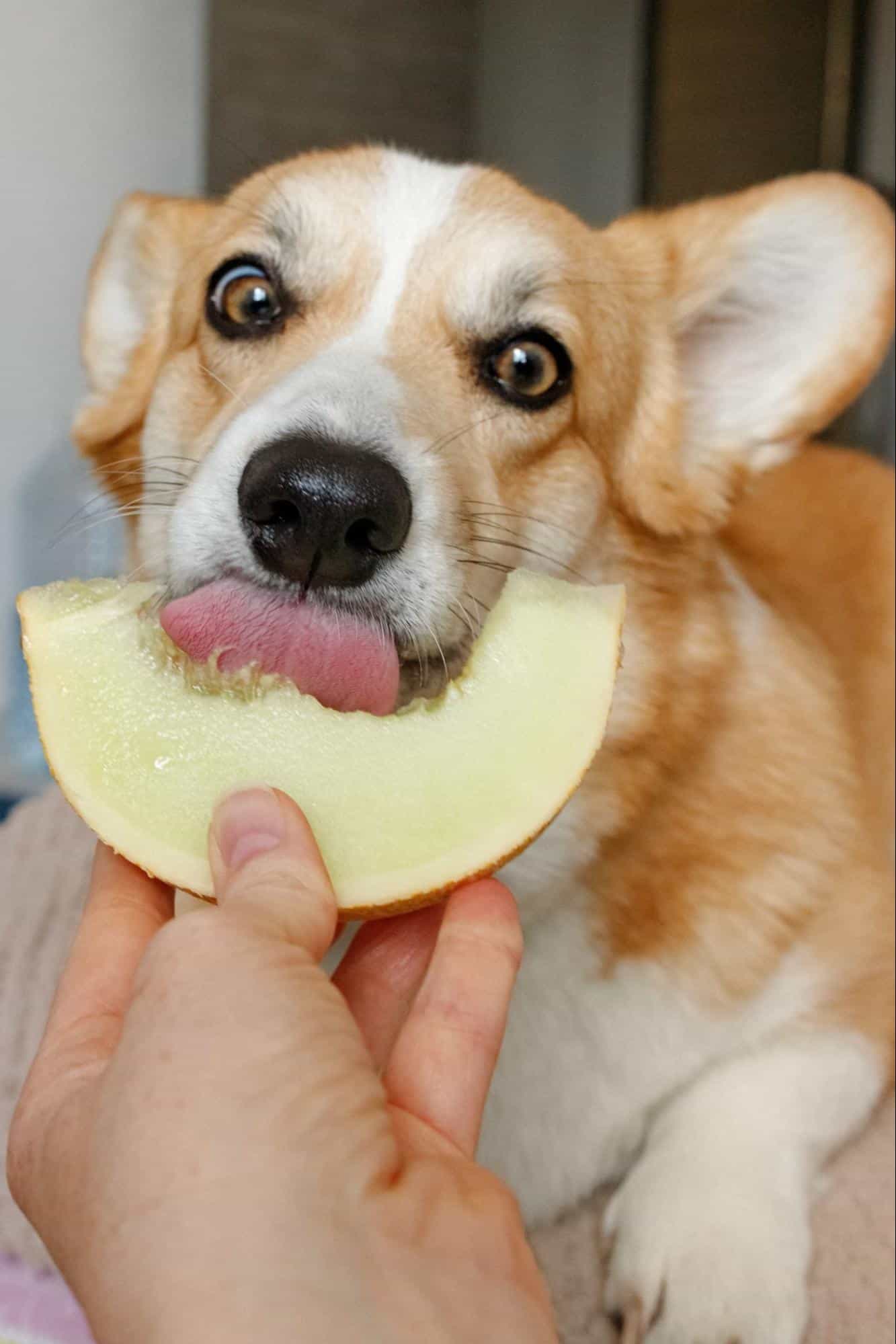Trying to figure out whether pork rinds are safe for your pup? If so, you’ve come to the right place!
While pork rinds, or chicharróns, might be a lip-smacking delight for us, they can spell trouble for our beloved canines.
Let’s dive into why and explore healthier alternatives or snacks that can replace pork rinds.
Scroll down to get started!
Table of Contents
Description of Pork Rinds / Chicharons

Pork rinds might be a favorite indulgence for us, but can dogs eat pork rinds? No. In this section, we’ll uncover the dangers of feeding pork rinds to dogs and why it’s best to avoid sharing these tempting treats with our furry pals.
High-fat content
Pork rinds are loaded with unhealthy fats, which can spell trouble for our pups. Regularly consuming high-fat treats like pork rinds can lead to various health issues, including joint problems, heart disease, and diabetes.
Potential Danger: Joint issues, Heart disease, and Diabetes
Excessive fat intake can strain your dog’s joints, especially for overweight or elderly dogs, increasing the risk of arthritis and mobility issues. Moreover, the extra fat can lead to obesity, further elevating the chances of heart disease and diabetes, just like in humans.
Sodium overload
Sodium levels in pork rinds are way too high for dogs. This can result in increased blood pressure, dehydration, and kidney problems, putting an unnecessary strain on their organs.
Potential Danger: Increased blood pressure, dehydration, and kidney problems
Elevated sodium intake can lead to hypertension in dogs, increasing the risk of heart and kidney problems. Additionally, excessive salt can cause dehydration, potentially leading to urinary issues and discomfort for our furry friends.
Digestive problems
Canine digestive systems aren’t designed to handle the richness of pork rinds. Feeding these treats can lead to unpleasant gastrointestinal issues such as diarrhea, vomiting, and upset stomach.
Potential Danger: Diarrhea, Vomiting, and gastrointestinal upset
The high fat and seasoning content in pork rinds can irritate your dog’s digestive tract, resulting in diarrhea and vomiting. The sudden change in diet can lead to stomach upset, causing discomfort and distress.
Allergic reaction
Like humans, dogs can also be allergic to certain foods, and pork rinds are no exception. Allergic reactions may manifest as skin irritation, itching, gastrointestinal upset, difficulty breathing, or even life-threatening anaphylaxis.
Potential Danger: Skin irritation, Itching, Gastrointestinal upset, Difficulty breathing, or Anaphylaxis
If your dog is allergic to pork or any ingredient in the pork rinds, they may experience skin problems, itchiness, or gastrointestinal distress. Severe allergies can lead to breathing difficulties or life-threatening anaphylactic shock, requiring immediate veterinary attention.
Choking hazards
Chewing on pork rinds can lead to pieces breaking off and lodged in your dog’s throat, causing choking. This risk is exceptionally high for smaller dogs or those who quickly gobble their treats.
Considerations for Feeding Pork Rinds to Dogs
If you do decide to share a small piece of pork rind with your furry companion, it’s essential to consider your pup’s size and breed to ensure that the portion you do ultimately decide to give them helps them maintain a healthy and balanced diet.
Size and Breed Considerations

When it comes to sharing any amount of pork rind with our pups, size and breed play a vital role. Smaller pups may get stomach aches and digestive issues more easily than larger ones.
Moderation and Portion Control
Too much fat or salt from pork rinds can upset your furry friend’s delicate digestive system or contribute to weight gain, so moderation is key if you do decide to give your pup any amount of pork rind as a treat.
And if you’re not sure on sizing of your pork rind treat or whether it’s right for your pup, reach out to your veterinarian.
Alternatives and Healthy Treat Options for Dogs
As responsible pet owners, we want to ensure our furry friends enjoy tasty snacks while maintaining their health and happiness. So, let’s explore a variety of alternatives and healthy treat options for dogs that will make their tails wag with delight and keep them in the best shape possible.
Lean Meats
Lean meats are a fantastic option for all those meat-loving pups out there. Whether it’s small pieces of cooked chicken, turkey, or even some delicious beef, these protein-rich treats will satisfy their taste buds without overloading them with unhealthy fats. Plus, they’re great as high-value rewards for training your pup as well!
Remember to avoid seasoning with harmful spices, and your furry friend will thank you for the tasty treat!
Fruits and Vegetables

Opt for good old fruits and vegetables! Adding a splash of color and nutrition to your dog’s diet is easy with fruits and vegetables. From crunchy baby carrots and sweet apple slices to tasty blueberries and banana chunks, these natural treats contain essential vitamins and minerals.
Plus, they make for a refreshing and hydrating snack during warmer days. Always ensure the fruits and veggies are safe for dogs and avoid grapes, raisins, and onions, which can harm their health. But ensure you know which ones suit dogs before giving them to your furry friends.
Dental Chews
Dental health is crucial for our pups, and dental chews are a win-win solution. These chewy treats keep your dog entertained and help scrape away plaque and tartar from their teeth, promoting better oral hygiene.
Look for high-quality dental chews that are specifically designed for your dog’s size and dental needs to keep those pearly whites shining bright!
Natural Dog Treats
When browsing for commercial treats, opt for those labeled as “natural.” These treats are typically made with minimal processing and contain wholesome ingredients, steering clear of artificial additives or preservatives.
Natural treats often feature delicious flavors like peanut butter, sweet potato, or salmon, making them an enticing and healthy choice for your furry friend.
Homemade Treats
Unleash your inner chef and whip up some homemade goodness for your dog. There are countless easy-to-make recipes online for dog-friendly treats, from peanut butter oatmeal cookies to pumpkin pupcakes.
Making treats at home lets you control the ingredients, ensuring your dog gets only the best. Just be cautious with certain ingredients like chocolate, which harms dogs. With such a wide array of alternatives and healthy treat options, we can shower our dogs with love and delicious snacks without compromising their well-being.
Conclusion
Keeping our dogs healthy is paramount, and being aware of the potential dangers of feeding them pork rinds is crucial. With high fat and sodium content, pork rinds can lead to health issues in our furry friends.
However, by opting for safe and nutritious alternatives like lean meats, fruits, dental chews, natural dog treats, and homemade goodies, we can show our love while ensuring their well-being. Making informed choices and offering a balanced diet will keep our dogs happy, vibrant, and thriving companions for years.
Let’s cherish their health and happiness as we share life’s journey with our beloved canines.
FAQ
Can I give my dog a small piece of pork rind as an occasional treat?
While a small piece of pork rind might not be immediately harmful, it’s best to avoid it altogether. Pork rinds are high in fat and sodium, which can lead to digestive issues and weight gain in dogs. Opt for healthier treat alternatives to keep your furry friend happy and healthy.
What should I do if my dog ate a pork rind
First of all, don’t panic. Look out for any signs of discomfort in your dog. If you notice symptoms such as vomiting or diarrhea, consult your veterinarian right away.
Can dogs eat chicharon?
No, dogs cannot eat chicharon or pork rinds. These snacks are high in salt, oil, and fats, which can be harmful to dogs and can lead to digestive problems.
My dog loves pork rinds, but I’m worried about their health. What are some safe alternatives?
There are plenty of safe and delicious alternatives to pork rinds for your furry companion. Lean meats like cooked chicken or turkey, fruits and vegetables such as carrot sticks or apple slices, dental chews, and natural dog treats are excellent choices that promote better health without compromising on taste.
Can I make homemade treats for my dog? Are they better than store-bought options?
Absolutely! Homemade treats can be a great option, as they allow you to control the ingredients and ensure they are free from harmful additives.

